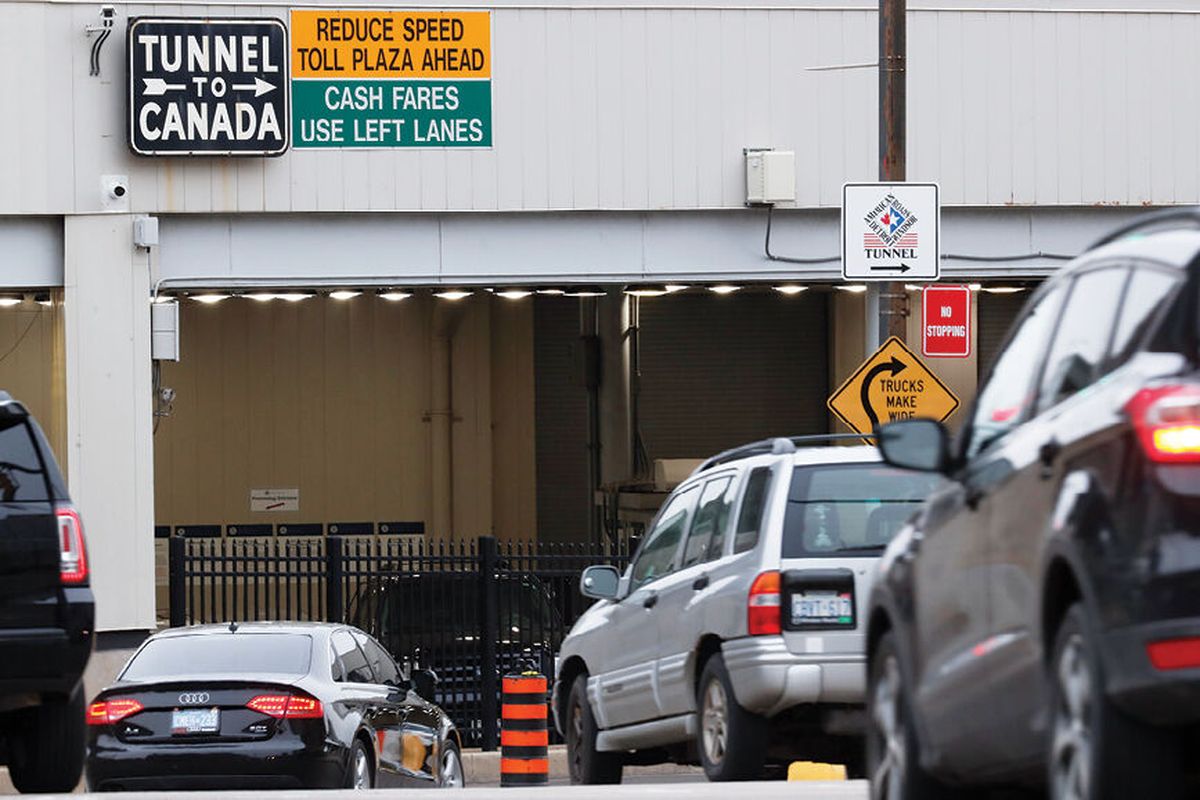U.S. continues travel limits on northern border despite Canada’s plan to open to fully vaccinated Americans

The Biden administration announced Wednesday that it will continue border restrictions on nonessential travel to the U.S. from Canada at land and ferry entries, deviating from Canada’s plans to completely open to fully vaccinated Americans.
Alejandro Mayorkas, secretary of Homeland Security, announced in a notice that travel restrictions will continue through Aug. 21 at both the Canada and Mexico borders.
“This document announces the decision of the Secretary of Homeland Security to continue to temporarily limit the travel of individuals from Canada into the United States at land ports of entry along the United States-Canada border,” the notice issued by Mayorkas says.
The continuation comes on the heels of the Canadian government’s announcement that it will completely open borders to U.S. citizens fully vaccinated for at least 14 days starting Aug. 9.
That means fully vaccinated travelers will not be required to undergo a 14-day quarantine or testing when entering Canada. However, the Public Health Agency of Canada said that travelers will still be required to take a pre-entry COVID-19 molecular test.
Washington lawmakers universally panned the Biden administration’s decision, lamenting the impacts on Washington communities straddling the border.
“The Biden administration’s short-sighted decision to yet again extend temporary cross-border restrictions is another blow to border communities in Washington state,” said Washington House Democrat Rick Larsen, whose district includes a portion of Whatcom County near the border.
Kyle VonEnde, a spokesman for Rep. Cathy McMorris-Rodgers, said the congresswoman believes that border restrictions will have an undue, damaging effect on Washington businesses that rely on Canadian customers and will further delay the re-opening of the economy.
Washington Gov. Jay Inslee said on Twitter he was disappointed by the decision and will continue to advocate for at least a partial re-opening of the border.
Rep. Dan Newhouse, a Washington House Republican, joined the chorus of criticism.
“The ramifications this closure has on our border communities and small businesses is causing more long-term damage than he (President Joe Biden) seems to realize,” Newhouse said. “Enough is enough.”
Washington Democratic Sen. Patty Murray was frustrated by the administration’s decision and is pushing for the possibility of an exemption for Point Roberts, a U.S. enclave surrounded on three sides by water and one side by the Canadian border that virtually entirely relies on Canadian visitors for business.
“I want to be crystal clear so that President Biden and the administration understand me: At the very least, we need an emergency exemption from these restrictions for the Point Roberts community and in fact, we needed it yesterday,” Murray said.
U.S. Suzan DelBene, whose congressional district includes Point Roberts, said her constituents were praying this was the month to open the border and that the administration’s decision is devastating to the community.
The Department of Homeland Security did not immediately respond when asked whether the agency would consider an exemption for Point Roberts.
Jim Simpson, a resident of Blaine, Washington, who’s married to a Canadian living on the other side of the border, was caught flat-footed by the administration’s decision.
“We were worried about the Canadian government; everybody I know thought the U.S. was going to open up,” Simpson said.
Under the current arrangement, Simpson’s wife will have to fly down to the closest U.S. airport to visit her husband so that she avoids a land border crossing, where restrictions are implemented.
She lives a 15-minute drive away.
The couple is just one example of the many inconveniences caused by the various border shutdowns over the past 18 months.
The reaffirmed U.S. restrictions limit travel to the country through land and ferry crossings to “essential travel,” or travel for work, medical or educational reasons.
Travel for tourism or recreation is not permitted.
Despite the extension, the Department of Homeland Security noted positive developments in recent weeks, according to the notice.
The Centers for Disease Control and Prevention moved Mexico and Canada from COVID-19 Level 4 (Very High) to Level 3 (High) on June 9, signaling improving conditions.
The United States first closed land borders with both Canada and Mexico in March 2020, with re-evaluations of the closures every month since.
The U.S. land border restrictions do not bar U.S. citizens and lawful permanent residents returning to the U.S., the Vancouver (B.C.) Sun reported. As in prior extensions, DHS said it could still seek to amend or rescind the restrictions before Aug. 21.